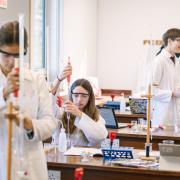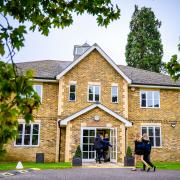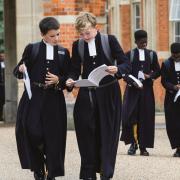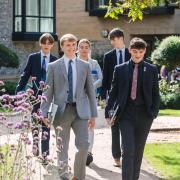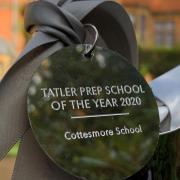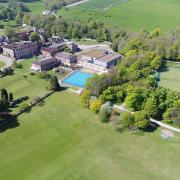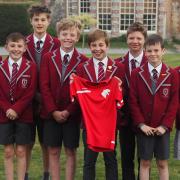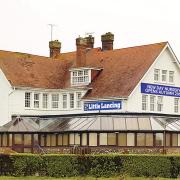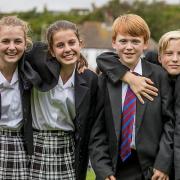Ann Aughwane, head of Burgess Hill School for Girls, is proud of her pupils' academic results but is also proud of all they achieve after they leave
Burgess Hill School for Girls is proudly a single-sex institution. What part do you think that plays in its excellent academic results?
We are quite simply specialists in girls’ education. The ethos encourages the girls to aim high; we harness the natural enthusiasm girls have for learning and they respond brilliantly in a girls-only space where they can be themselves. Being at school is their ‘day job’; they are busy and have fun but do not lose their focus on learning.
How have you managed to develop and maintain these results?
The staff are great, their enthusiasm and passion is contagious and the girls are inspired to learn. The relationships between staff and girls has been recognised as outstanding by the Independent Schools’ Inspectorate and Psychologists recognise that relationships are particularly important in enabling girls to do their best.
Obviously education is much more than academic subjects, what were your favourite extra-curricular activities as a girl?
The range available to me was very limited compared to the activities of today and sadly I was neither musical nor sporty so my extra-curricular activities were mainly out of school. I was a girl guide and ended up running the group to keep it going until I went off to university.
How are these reflected in your school?
We have a fantastic range of activities from regular clubs, such as ‘roving reporters’ for our budding journalists; public speaking and debating; philosophy; photography; drama; Duke of Edinburgh Award; chess; numerous sporting and musical groups, etc, to the more adventurous and exotic, for example, World Challenge treks through challenging terrain in Iceland and community building projects in Uganda. Recently, parents, former staff and students also got involved in the Margaret Morris Memorial Challenge, walking and cycling 600km in five days.
Potentially a girl could join your school in the nursery and stay until she has taken her A-levels. As well as good qualifications, what do you hope she will take with her?
A clear sense of who she is as a person with huge potential, high aspirations, strong values and integrity, a sense of responsibility and an understanding of the importance of community – she will be prepared to take risks, inspired to make a difference and committed to always be the best she can be.
On that theme, how do you think your school prepares your girls for the world after they leave?
Judging by the girls who come back to talk to current students and just to catch up, they do brilliantly. They achieve success at university, take responsibility and contribute to their communities, continuing the pattern they were encouraged to adopt at school, getting involved and leading. They enjoy success at every level and act as role models for others.
If you could make one change to the provision of education in the UK, what would that change be?
I would have a maximum size of school that ensured that each pupil was known as an individual. The sense of community and belonging is so much stronger when you know and are known by almost everyone around you. To be part of very large year groups and huge schools invites a sense of being less significant, less accountable, and less important; it leads to all but the highly motivated and confident pupils missing out on opportunities for leadership and personal development.



